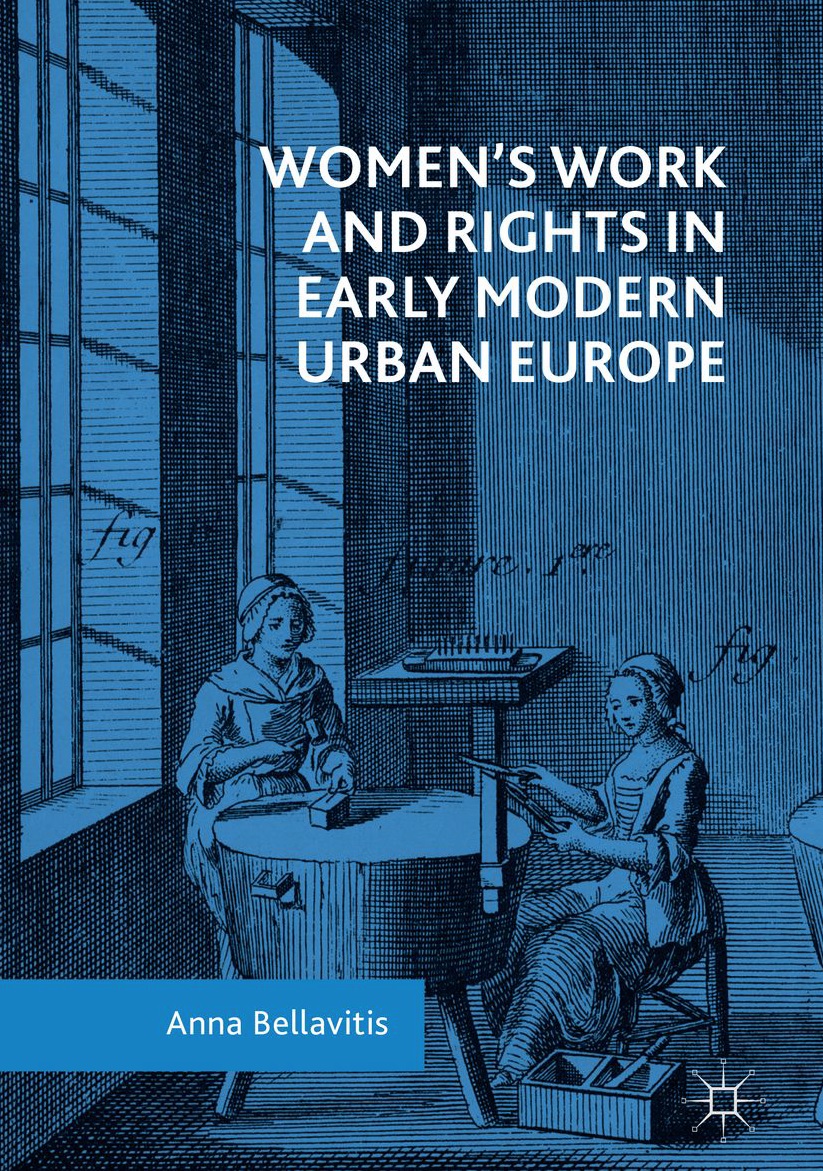Anna Bellavitis, Women’s Work and Rights in Early Modern Urban Europe, Palgrave Macmillan, 2018
 In the last decades, women’s role in the workforce has dramatically changed, though gender inequality persists and for women, gender identity still prevails over work identity. It is important not to forget or diminish the historical role of women in the labour market though and this book proposes a critical overview of the most recent historical research on women’s roles in economic urban activities. Covering a wide area of early modern Europe, from Portugal to Poland and from Scandinavia to the Mediterranean, Bellavitis presents an overview of the economic rights of women – property, inheritance, management of their wealth, access to the guilds, access to education – and assesses the evolution of female work in different urban contexts. In the last decades, women’s role in the workforce has dramatically changed, though gender inequality persists and for women, gender identity still prevails over work identity. It is important not to forget or diminish the historical role of women in the labour market though and this book proposes a critical overview of the most recent historical research on women’s roles in economic urban activities. Covering a wide area of early modern Europe, from Portugal to Poland and from Scandinavia to the Mediterranean, Bellavitis presents an overview of the economic rights of women – property, inheritance, management of their wealth, access to the guilds, access to education – and assesses the evolution of female work in different urban contexts.
More informations are available at the editor’s website. |
Table of contents
- Women Have Always Worked
- The Gender of Work
- Working Daughters, Wives, Mothers, Sisters, Widows
- The ‘Decline Thesis’ and the Guilds: An ‘Accordion Movement’?
- From Globalisation to Industrialisation
- Agency and Capabilities: North Versus South?
- The Right to Learn, the Right to Teach: Intellectual and Artistic Work as a Profession
- Servants and Slaves
- Caring and Feeding
- Midwives
- Bodies as Resources
- Learning at Home and on the Shop Floor
- Women, Families, Guilds and the French Exception
- Silk and Skill
- Printed Tracks
- In the Market Place
- International Traders
- Conclusion: Changes and Continuity
